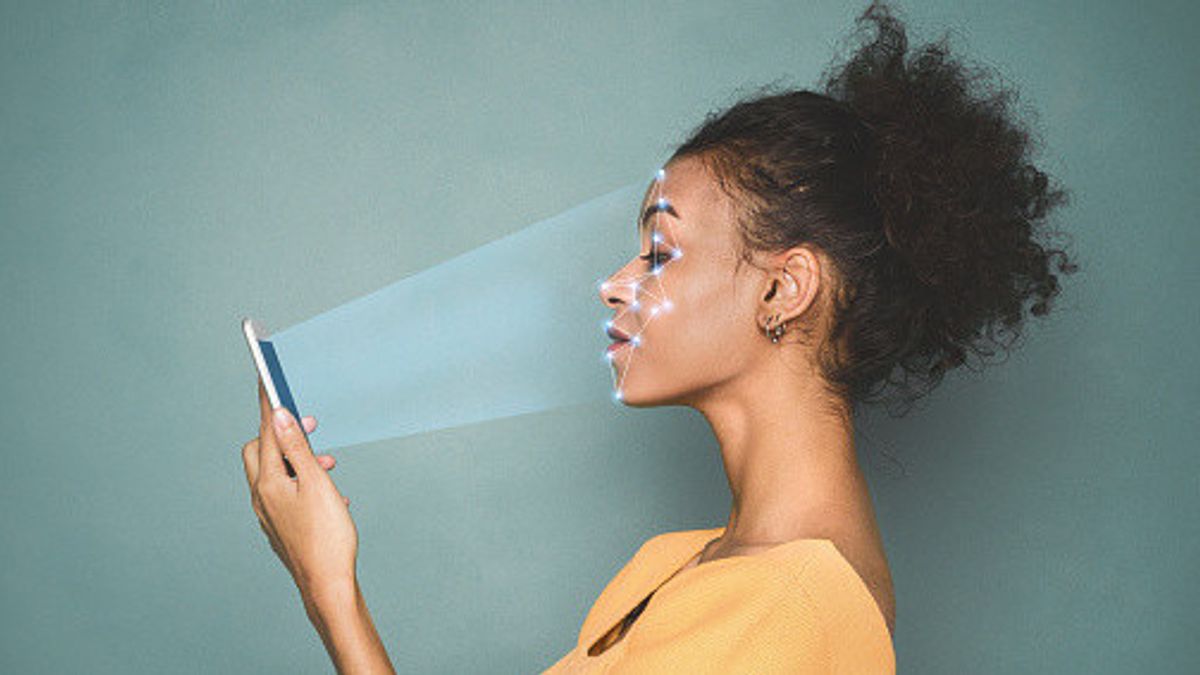JAKARTA - Apple will be able to present Face ID (Face ID) under the screen to the iPhone 16 Pro. According to a report from the Korean outlet The Ec (via MacRumors), the technology used for Face ID will work or live directly below the screen, blending with other displays once turned on and only showing pieces to face the front of the camera.
Rumors about the under-screen technology first emerged last year. But this technology never worked on the iPhone 14 Pro, and the iPhone 15 was also not expected to be accompanied by that technology. Elec's reporting line with predictions from supply chain analyst Ross Young, who tweeted last year that he expects the iPhone 16 Pro to appear with Face ID (Face ID) below the screen.
The reason why it hasn't happened before is because the technology for technology under the screen doesn't exist yet, and it's been proven with other phone companies that have tried to combine cameras under the scenes, such as ZTE.
Based on the technical challenges remaining for under panel cameras to meet discerning brands quality requirements as well as panel manufacturers' cost requirements, I still believe this roadmap makes sense for the iPhone. pic.twitter.com/3ck5X3sVcL
— Ross Young (@DSCCRoss) May 10, 2022
Samsung has also been experimenting with under-screen cameras, but this well-known smartphone maker couldn't do it right. They first added the feature to the Galaxy Z Fold 3, but the camera was still visible even when the screen was turned on and imaged low-quality images for the boot.
While the Galaxy Z Fold 4 features some additional upgrades that hide the camera under the screen a little better, it's still taking a trivial 4 megapixel photo.
Face ID is clearly different from traditional selfie cameras. This feature uses the TrueDepth infrared camera to map and analyze the user's face, and that makes technological challenges even more difficult.
Apple cannot launch an iPhone with Face ID where IR cameras have difficulty identifying the user's face while trying to unlock the phone or pay with Apple Pay.
According to The Elec, Apple plans to expand this technology to include an ordinary selfie camera not only an IR Face ID camera under the screen as well. This has the potential to completely eliminate the notch, as Apple no longer needs scissors on the screen to accommodate Face ID components and camera holes. It's unclear when Apple will succeed in doing this, but Young doesn't expect it to be at least until the iPhone 18 Pro by 2026.
For now, it looks like the iPhone 16 still has some kind of notch for cameras, although smaller and potentially less visible. But when that notch is gone, it will question the future of Dynamic Island, which is built on scissors and turns it into an interactive space to keep an eye on sports scores or check your Uber travel status.
It looks like Apple is not planning to remove the feature, as it plans to be present on all iPhone 15 models. But the iPhone 15 Pro, on the other hand, is rumored to be showing up with some additional upgrades, including the hatic volume and power button, as well as the USB-C.
The English, Chinese, Japanese, Arabic, and French versions are automatically generated by the AI. So there may still be inaccuracies in translating, please always see Indonesian as our main language. (system supported by DigitalSiber.id)












